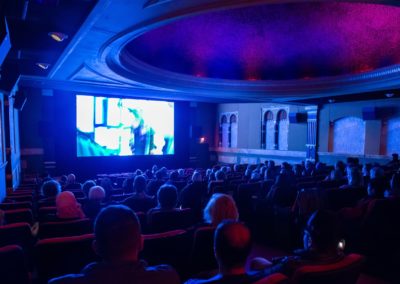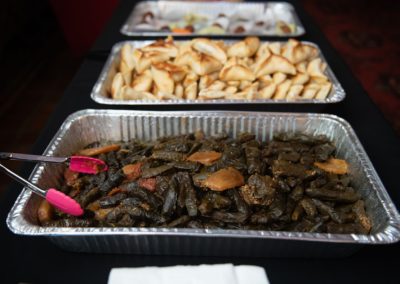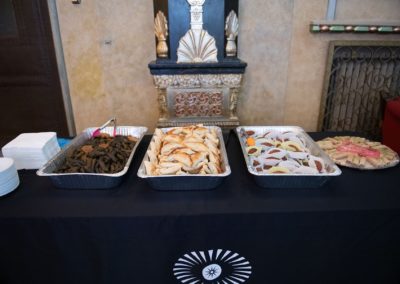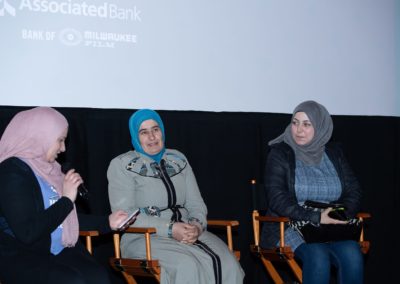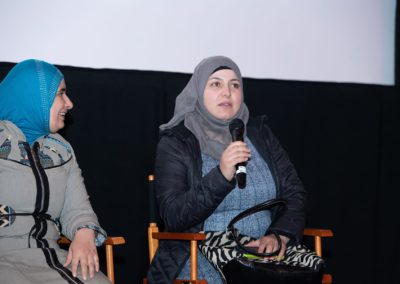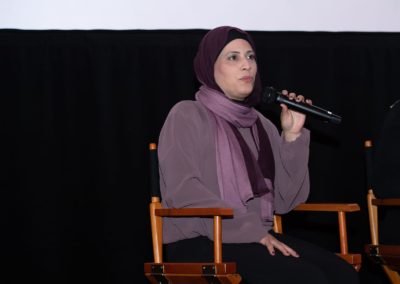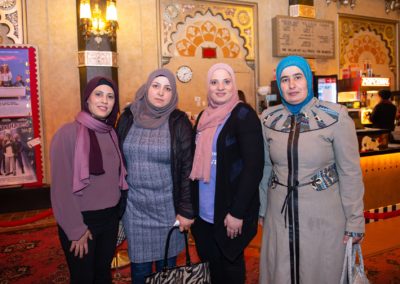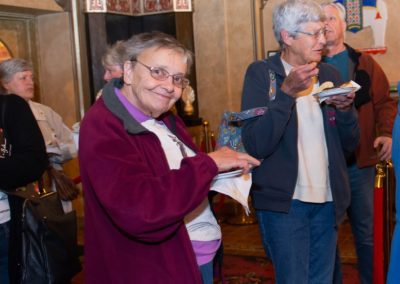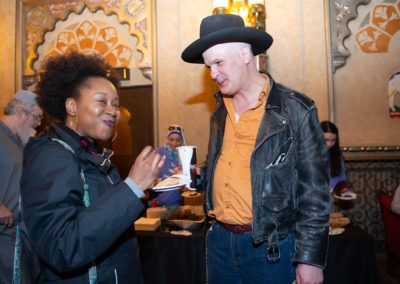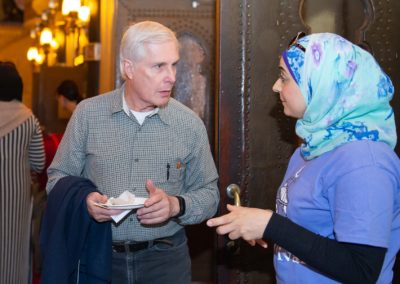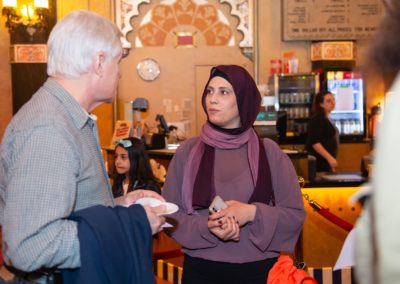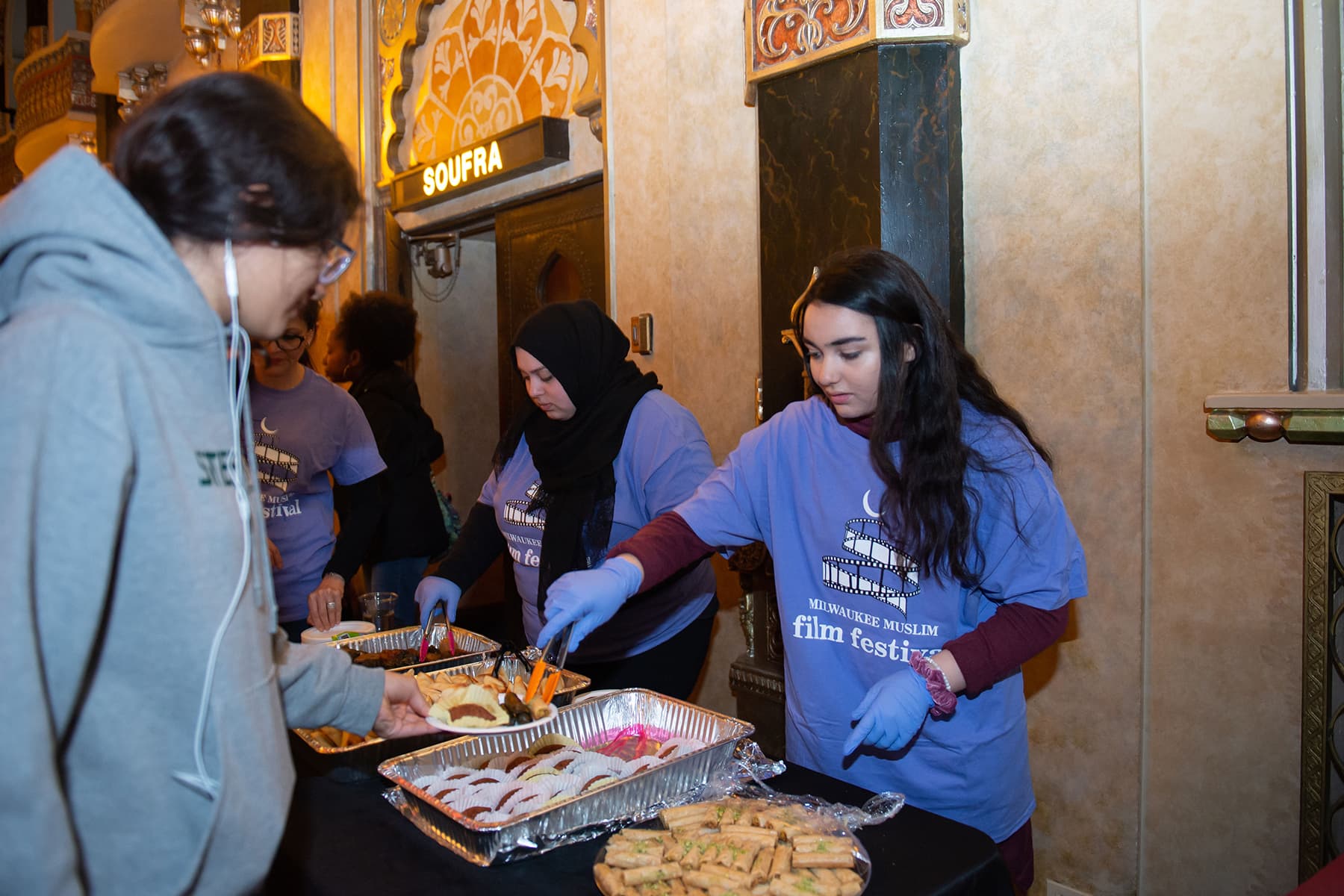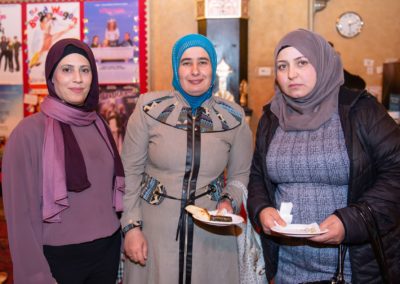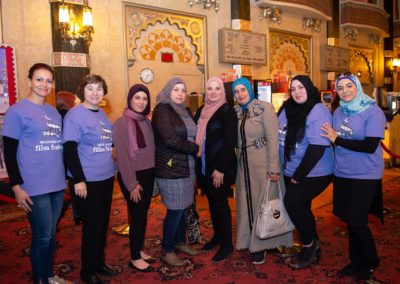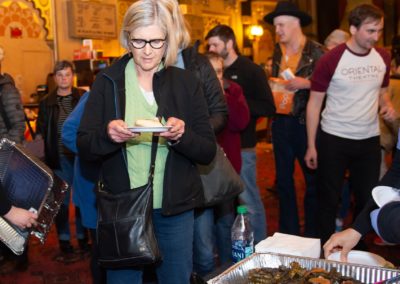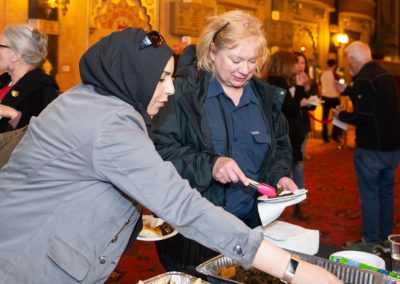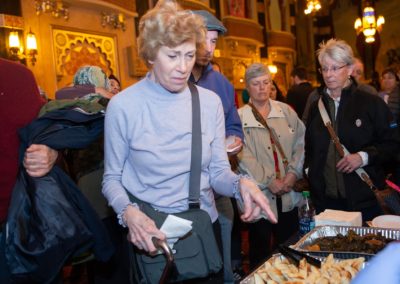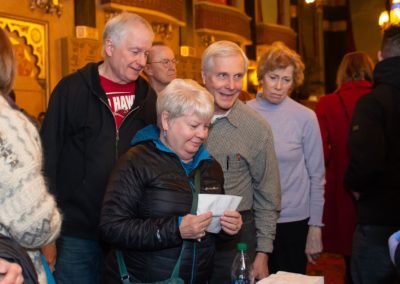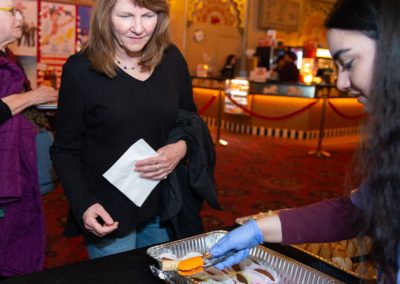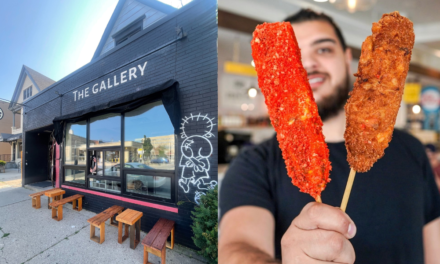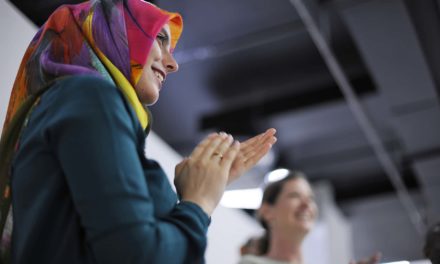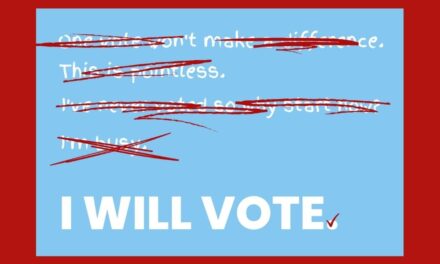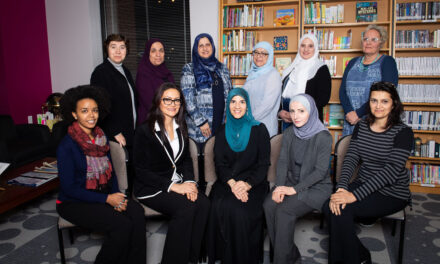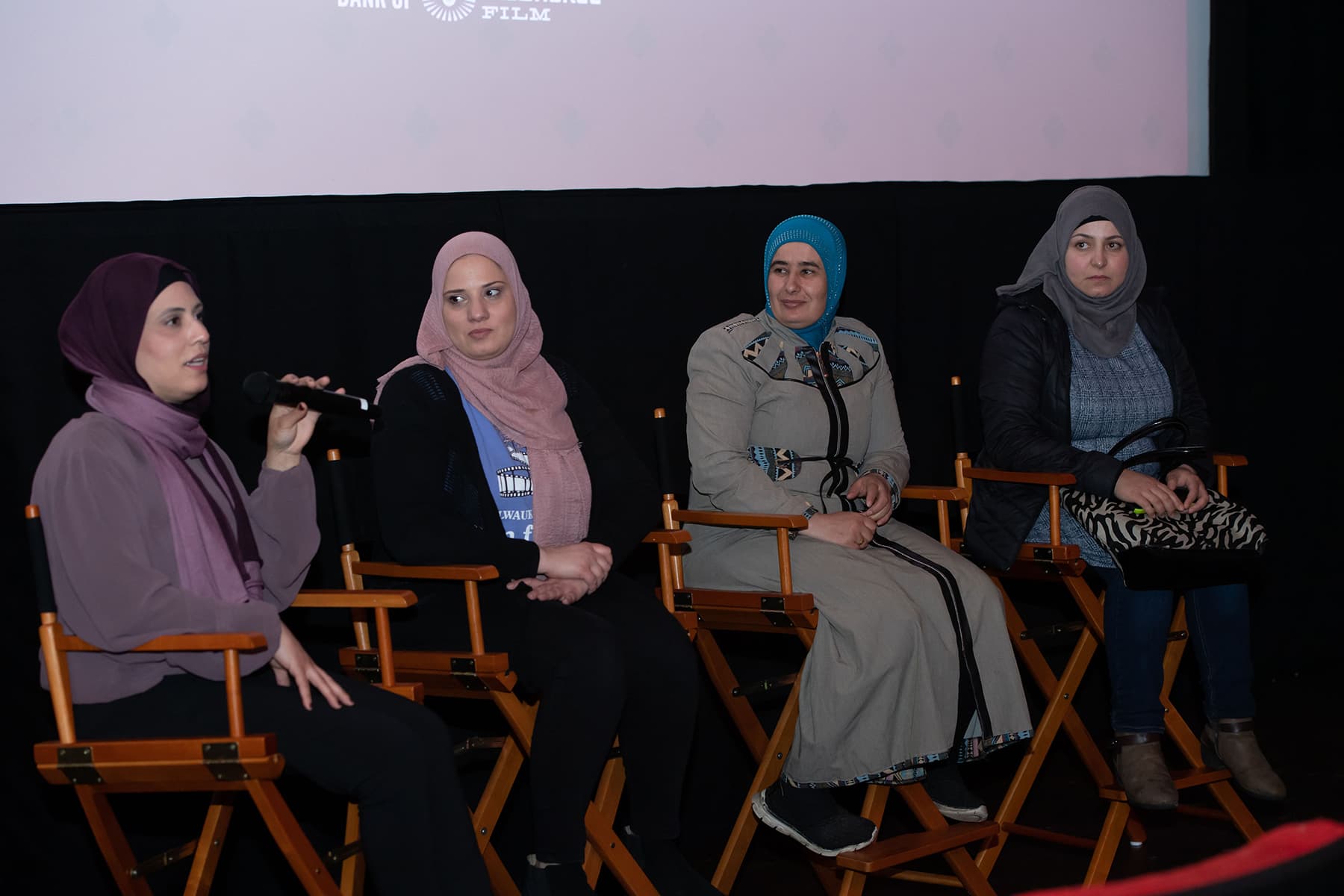
While opening night was a hit, the Milwaukee Muslim Film Festival proved it’s line-up of films followed by talk backs and creative after film experiences could bring people back to the Oriental Theatre multiple times a day during its four day run.
Marilyn Raschka drove in from Hartford all four days and attended every one of the seven films, including three shows on Saturday. She said “they were all extremely well done,” but in terms of impact, she felt the film Ghost Hunting was the best of the seven and very cleverly done. The film, which was brought in from France, showed Palestinians who had been former prisoners in the same Israeli prison, all at various times, some held for years without charge, (none of them knew each other) rebuild and re-enact their prison cells and the torture techniques used by the Israeli guards. The former prisoners were originally recruited to participate in a play, but a requirement for hire was to also have a skilled craft in the building industry. Marilyn said “It was powerful! All the layering, the interspersing of normal cinema like brushing make-up on the man’s face.”
Other films, like Life Without Basketball, which was co-presented by Black Lens, proved to be a crowd pleaser. Amal Jaber said that was her favorite film. The resilience of the film’s subject, Bilqis Abdul Qadeer and her commitment to her faith and to social justice was “incredibly inspiring.” The talk back speaker for LWB was Larry Dupuis, a lawyer with the ACLU of Wisconsin, he provides overall leadership and coordination for the litigation program. The lively discussion and interaction could have gone on for hours.
Soufra was another crowd pleaser and as Marilyn, who attended all of the films said, “it is exactly the kind of film that needs to be shown to Americans. From the first scene, stereotypes of Arab and Muslim women are blown away. It was full of humor, adversity, reality… just marvelous.” Murtiyati Sutanto was equally impressed, “Soufra is captivating; it communicates the struggles and resilience of refugee women in Lebanon. It showed their ability to take charge of the most difficult situations and to make it better for themselves and for their families and other women facing similar hardships. One of the women, Mariam, in particular offers the viewer an excellent example, a role model of how to be a true leader with compassion.”
Soufra drew a huge crowd for a matinee. Many people were drawn by the opportunity to sample foods made by local women who did exactly what the women in the film did, refuse to allow their circumstances as refugees with limited financial means and in the case here, limited English skills to hold them back. The talk back speakers included Tahani Fadel and Samaher Aldaye (Um Marwan), both from Daraa, Syria, and Taqwa Obaid who lived in Jordan. Tahani has eight children and does catering in the Milwaukee area, she has been involved with the Milwaukee initiative called Tables without Borders, cooking for local restaurants, Um Marwan has five children and has emerged as a leader among many of the new families. A teacher in Syria, she quickly grasped the English language, got her driver’s license and is helping others navigate their new country. Both families arrived in the United States just days before the Muslim Ban was put into place by the Trump administration. The panel was organized in collaboration with Hanan Refugee Relief Group.The panel was moderated by Sausan Naji, a board member of the Milwaukee Muslim Women’s Coalition.
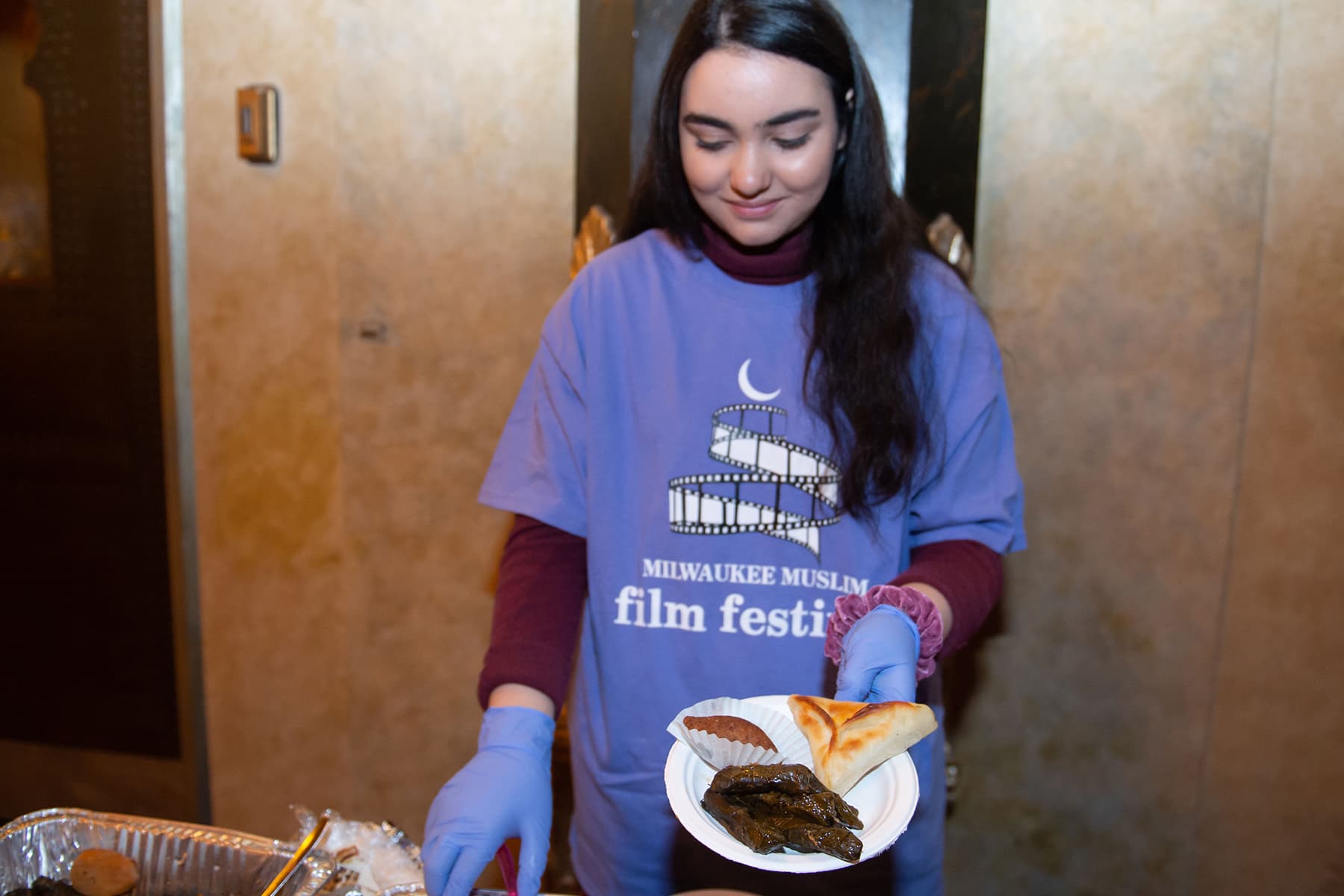
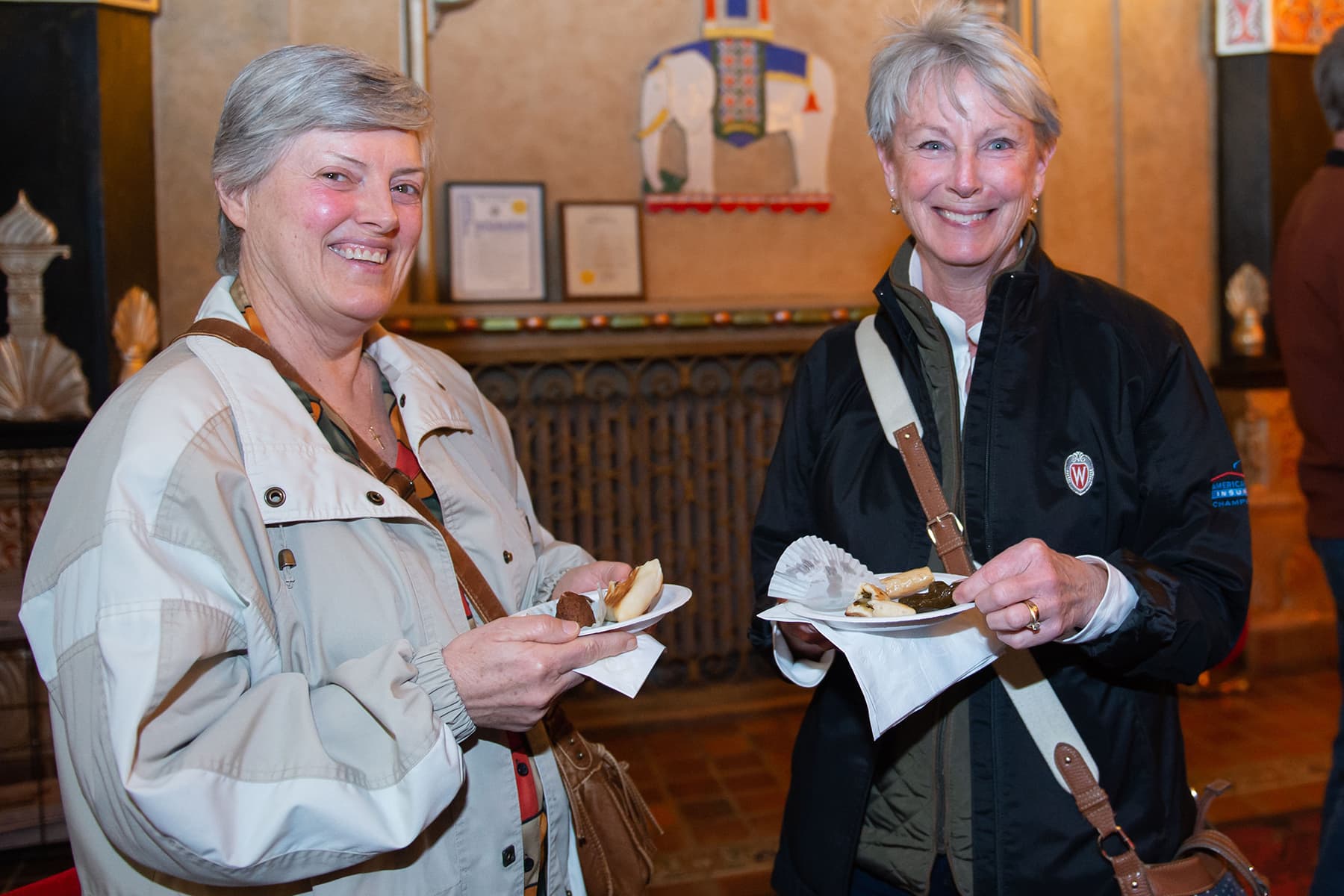
The audience was curious to know about their lives as refugees and how it was living in tents in the camps. Um Marwan shared her experience journeying from her destroyed home in Syria with her husband, her disabled sister-in-law and five children to a refugee camp in Jordan and finally, as one of the lucky ones, to the United States of America.
She was asked by one of the audience members if she wouldn’t mind describing what it is like living in a refugee camp and her response brought a still audience to shed some tears. After speaking about some of the difficulties of life inside a refugee camp, she shared a story about a mother who lit a candle in her tent, her only source of light and electricity, before heading out to hunt for some food for her three young children only to return and find the tent along with her children burnt down by a fire. She described the difficulties of moving to a country where she did not know the language or culture but the drive she had to learn it all. Um Marwan translated for Tahani Fadel, who similarly described her aspirations to provide a better life for her family.
Tahani described not only her passion for cooking but also her confidence in the food she serves. She described her experience working with Tables Without Borders and how although she was very tired from cooking for 43 people in just a few hours, “I was able to get through just knowing how much they loved my food and seeing a happy crowd.” Finally, the third guest speaker, Taqwa Obaid, who spoke fluent English, described her journey toward starting her own business. The talkback moderator vouched for her cooking skills a number of times and noted that Taqwa had planned to spend the entire weekend visiting family in St. Louis. She exclaimed, “she really is loyal to her customers…she drove all the way from St. Louis last night and began preparing the food as early as 6 am for us to share with our audience today at the food tasting.”
Starting out with picking up some hours at a fast food chain in Virginia to help support her family, Taqwa Obaid said she could see herself in the restaurant industry. She was taking orders from home and was cooking in her small kitchen and single oven when she became known for her great food, especially her famous, traditional Taboun bread. She moved up to selling her food in grocery stores and is now expecting to open her own restaurant within a couple of months time.
The audience members were invited to a food tasting just outside the theatre doors which included stuffed grape leaves, spinach pies, kibbeh bites and fresh baklawa, all made by the women. The musical sounds of ooh’s and aahh’s confirmed the famous saying that “food brings people and cultures together” and what a success that was for the Milwaukee Muslim Film Festival.
